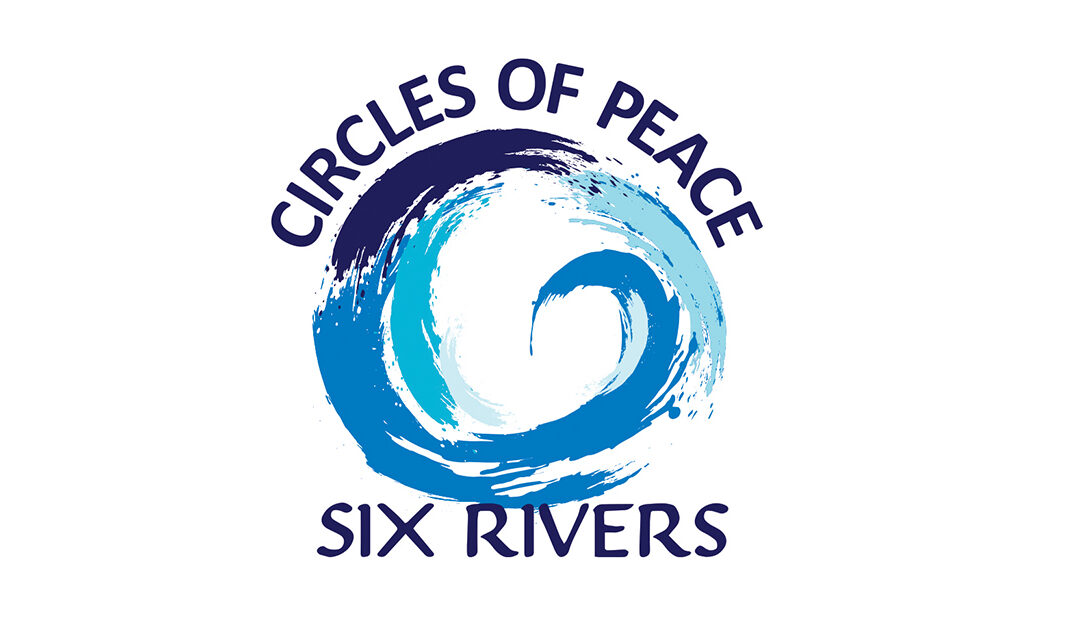A New Option for Survivors of Harm in the Gorge
Six Rivers Dispute Resolution Center is honored to announce the launch of our pilot Circles of Peace Restorative Justice program. Circles of Peace is an evidence-informed model that supports greater accountability, safety, and healing after an act of harm. Grants from the Oregon Criminal Justice Commission and Oregon Department of Justice made it possible for Six Rivers to carefully plan and build a survivor-centered restorative justice program unique to our rural communities.
What Is Restorative Justice?
Restorative justice is a process that addresses acts of harm between people. It centers the needs of the person who was harmed and holds the person who caused the harm accountable for repairing things as best as possible. Restorative justice prioritizes true accountability and lasting behavior change. Research shows that restorative justice can provide better outcomes for victims, offenders, and the community.

How Is Restorative Justice a Survivor-Centered Process?
Restorative justice supports safety and healing, while participants work towards repair and restitution. The process encourages accountability specific to each survivor’s unique needs.
Restorative justice benefits survivors in these ways:
- Survivors of harm have a voice throughout the process, the choice of whether or not to participate, and the chance to define what accountability and restitution look like for them.
- Research shows that re-occurrence of harm is reduced.
- Survivors report high levels of satisfaction in the process and outcome.
- Participation in restorative processes increases survivors’ sense of safety, security, and closure, and substantially reduces post-traumatic stress symptoms.
Thanks to Our Committed Partners
Six Rivers is grateful for the many partners who made valuable contributions during our 18-month planning and design phase. We give thanks to:
- Oregon Criminal Justice Commission, Oregon Department of Justice, and Portland Opportunities Industrialization Center + Rosemary Anderson High School (support grants)
- Our Design Team (victim advocates, prosecutors, public defenders, and community service providers)
- New York University’s Center on Violence and Recovery (expert technical and training advisor)
- Community leaders (expertise)
- Community members (survey input)
- Six Rivers Board, volunteers, and supporters

What Does Accountability Look Like to You?
With guidance from NYU’s Center on Violence and Recovery, we conducted a Community Readiness Assessment in Spring and Summer 2023. We interviewed leaders in our communities who serve in law enforcement, victim advocacy, the criminal justice system, and agencies who provide essential services. We also received direct input from community members through an ongoing survey. (Click here to take the survey. Click here to see results from the Community Readiness Assessment.) We learned a tremendous amount about the strengths of our community and about areas that need additional options and resources. We were encouraged to find that community values around accountability, survivor needs, safety, and behavior change are in alignment with core restorative justice values.What we heard from the Gorge community:
- Survivors of harm need to be heard and believed—and to have their wishes respected.
- Survivors need safety, choices, confidentiality, and resources for healing.
- Accountability includes repairing the impacts of the harm as much as possible, and not repeating the harm. This may require addressing the underlying issues that led to the act of harm.
- Survey participants would welcome additional resources and choices for those who have experienced harm.
- A single act of harm can impact many in the community—any effective response must include them.
- Accountability to the community includes crime prevention, as well as repair.
- Important elements of accountability are evidence-based interventions to help change behavior, social connections to support lasting behavior change, and a clear path for offenders to re-enter the community safely.

Circles of Peace Pilot Year
Through 2024, Six Rivers will run a pilot Circles of Peace restorative justice program, using peacemaking circles to address harm. The Circles of Peace model was developed by NYU’s Center on Violence and Recovery and has been rigorously studied for 20 years. Studies from the National Science Foundation and the National Institute of Justice have shown it to be a safe and effective model, with significantly lower recidivism rates and high levels of survivor satisfaction. (To learn more about Circles of Peace data, visit this link.)
Six Rivers’ Circles of Peace program has been adapted for our rural communities. Our program carefully screens for safety and suitability and monitors cases closely throughout the process. A certified victim advocate is available to be present at circle meetings when needed. Accountability and repair agreements are also closely monitored for follow-through.
In the Fall of 2023, Six Rivers launched a survivor support circle program to create opportunities for healing and connection for survivors of harm.
For more information about Circles of Peace or our survivor support circles, please contact Debra Pennington Davis at (541)386-1283 x4.

Get Involved
Become a community volunteer in Circles of Peace. Volunteers participate in circles and explore the impact of harm on the community and ways to repair it. They also help those involved heal and find peace after an act of harm.
Are you interested in being a trained community member? For more information, contact: Andy Oliver at (541)386-1283 x8.


Recent Comments